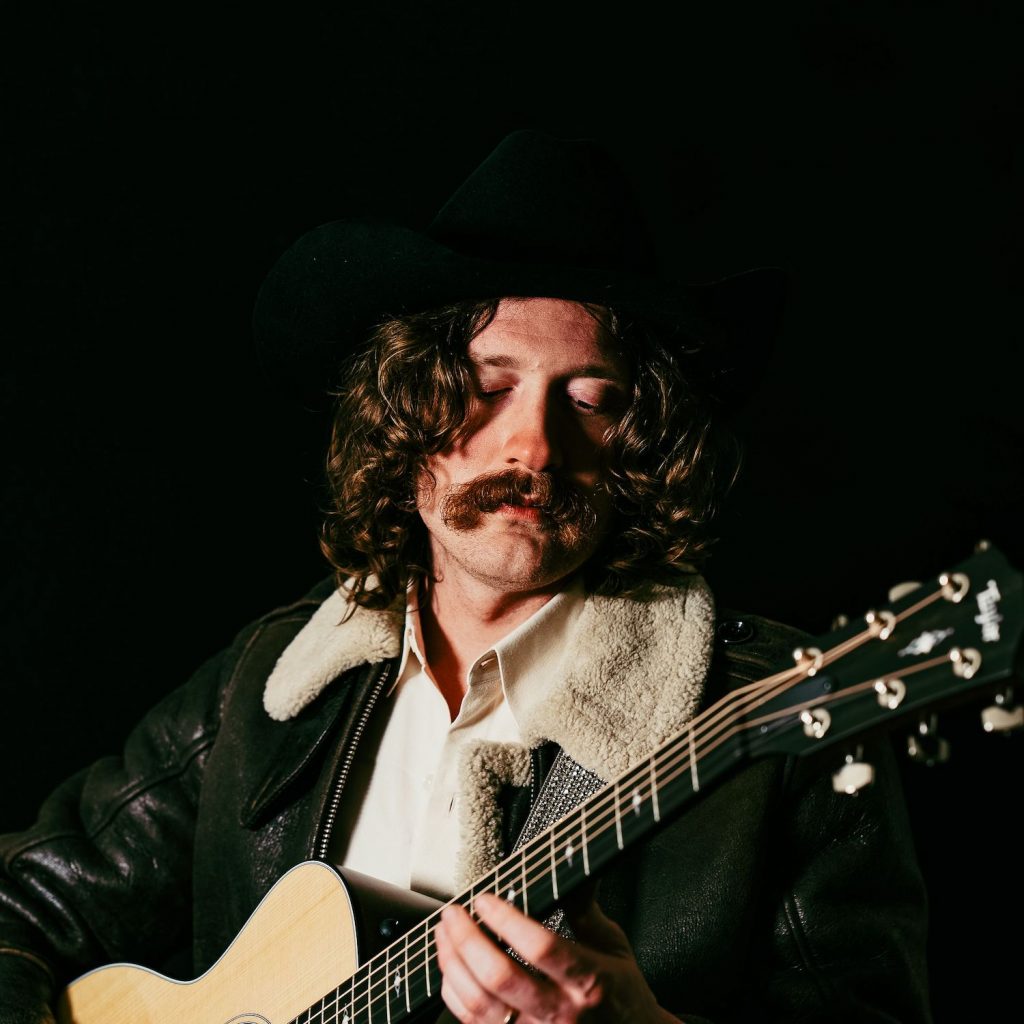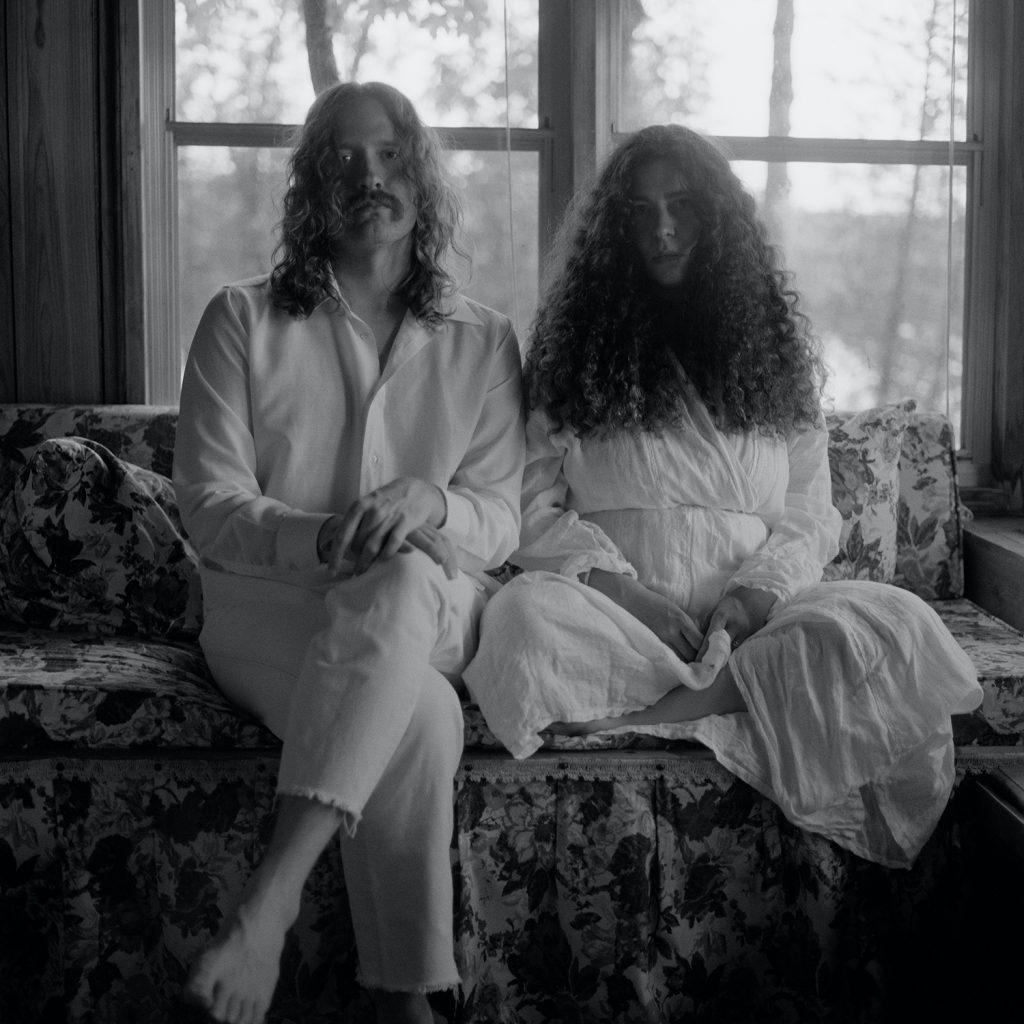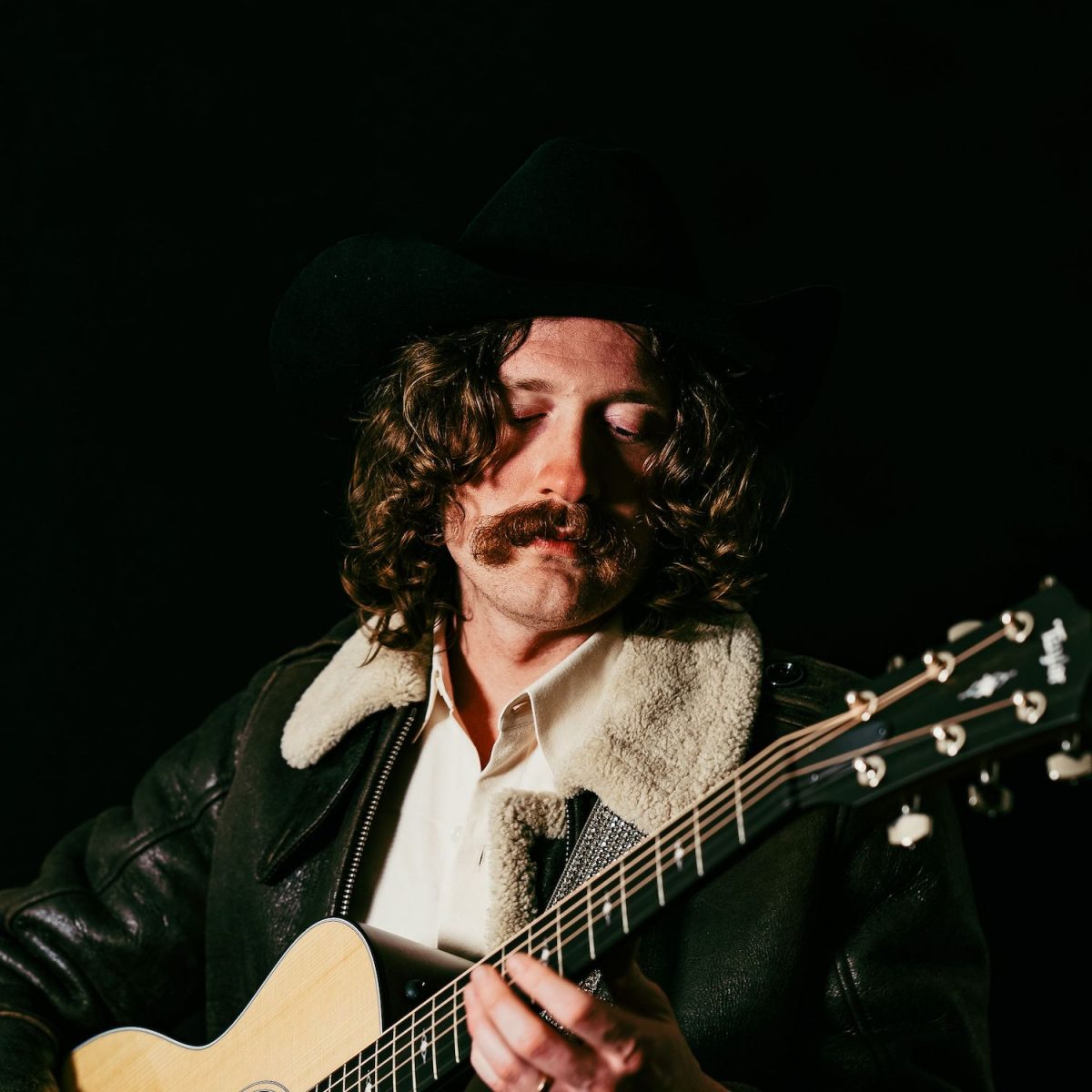
One of the most pleasant surprises of a COVID-hobbled 2019, Honey Harper’s Starmaker was a laser-focused cosmic-country exercise that owed as much to David Bowie and Brian Eno as it did to Gram Parsons and Glen Campbell. Had Honey Harper’s William Fussell actually toured that album, he surmises that its follow-up would’ve been similar in sound and spirit. But with little feedback from fans to guide his decision-making, Fussell trusted his gut and headed in a different direction for his second effort, embracing a full-band concept with a seasoned group of musicians headlined by multi-instrumentalist Alex Fischel (Spoon) and pedal-steel player Connor Gallaher (Black Lips, Calexico).
As for the music on Honey Harper & The Infinite Sky (ATO), it tests the limits of what one might call country and Americana, which was also Fussell’s intention with Starmaker. This time though, it all feels looser, funnier and less fussed-over. The cover is reflective of that shift. It supplants the clean-shaven, almost mannequin-like Fussell of Starmaker with a hirsute hippie troubadour in aviator shades. The one common dominator: a cowboy hat.
We caught up with Fussell at home in Toronto between tour legs, where he and his wife, Honey Harper co-founder Alana Pagnutti, are adjusting to life with a new baby. Raised in Georgia, Fussell is now officially a Canadian citizen. So will the real Honey Harper please stand up?
Honey Harper & The Infinite Sky is all over the place in the best sense—and so different from Starmaker in a lot of ways.
Starmaker was very deliberate and very painstakingly done. It was extremely focused. There was a direct purpose: to literally create the sound and the aesthetic of cosmic-country music. Our intention was to truly achieve something that sounded like country music made in space. It was definitely influenced a lot by Brian Eno’s Apollo: Atmospheres And Soundtracks. With this new record, we were trying to go in the exact opposite direction. Starmaker took two and half years, and this one took two and a half weeks. It was done live to tape in an older ’70s country/rock kind of way.
Did the full-band aesthetic on this new album inspire the arrangements?
The songs were written by my wife and I, mostly during the pandemic. Then we went to L.A. and recorded it with a seven-piece band. Half the arrangements happened beforehand, and the other half happened in the studio. We had so many great players who threw their ideas into it.

Was it hard relinquishing the control you had with Starmaker?
Not when you know how great the players are. Not only were they great, but they had great taste. We didn’t even have to say that much—they knew what we were trying to do.
Alana was more involved in this album, correct?
This was the first time we were both all in, as far as the writing process.
What’s the story behind “Ain’t No Cowboys In Georgia”?
The song deals with authenticity and what that means in Americana. I feel like I’ve been battling it for such a long time—this whole idea of being real and not selling out. But the more authentic you try to be, the less authentic it comes across. The song title came from my grandfather. I was being interviewed, and we were discussing my relationship with my grandfather and its deteriorating nature for lots of different reasons. He was a preacher who liked to indulge in alcohol. I made some reference like, “You can never trust a cowboy.” He read the interview and got very upset, as anyone would if their grandson aired something about them publicly in a magazine. He was big into sending me long, grandiose messages on Facebook. At the end of one, he said, “And by the way, they’re ain’t no cowboys in Georgia.” It was one the last things he said to me before he passed away, and he’s not wrong. He had a way with words—that’s for sure.
And then there’s “Boots Mine Gold.”
That’s the only song on the album that was written in the studio. That’s why it sounds so different. I’d been listening to a lot of Harold Melvin & The Blue Notes, and I wanted a song that sounded like that. But we ended up making a song that sounded nothing like that. In the studio, I initially started singing that first line like Michael McDonald. It was a joke. Then I went outside for a break, and the other guys came up with this other part. It’s a nice, fun, disco-country track inspired by the Bee Gees, Flo & Eddie and even Frank Zappa.
The album’s most straightforward song may be my favorite: “Big Sky,” which closes the album. It’s great how you just fade into the sunset with that one.
That was one of the ideas that came from depressive, drunken showering at the beginning of the pandemic. I’d poke my head out, grab my phone and hum an idea into it. Those were the voice notes I’d play for the band—with the shower running in the background.
—Hobart Rowland







